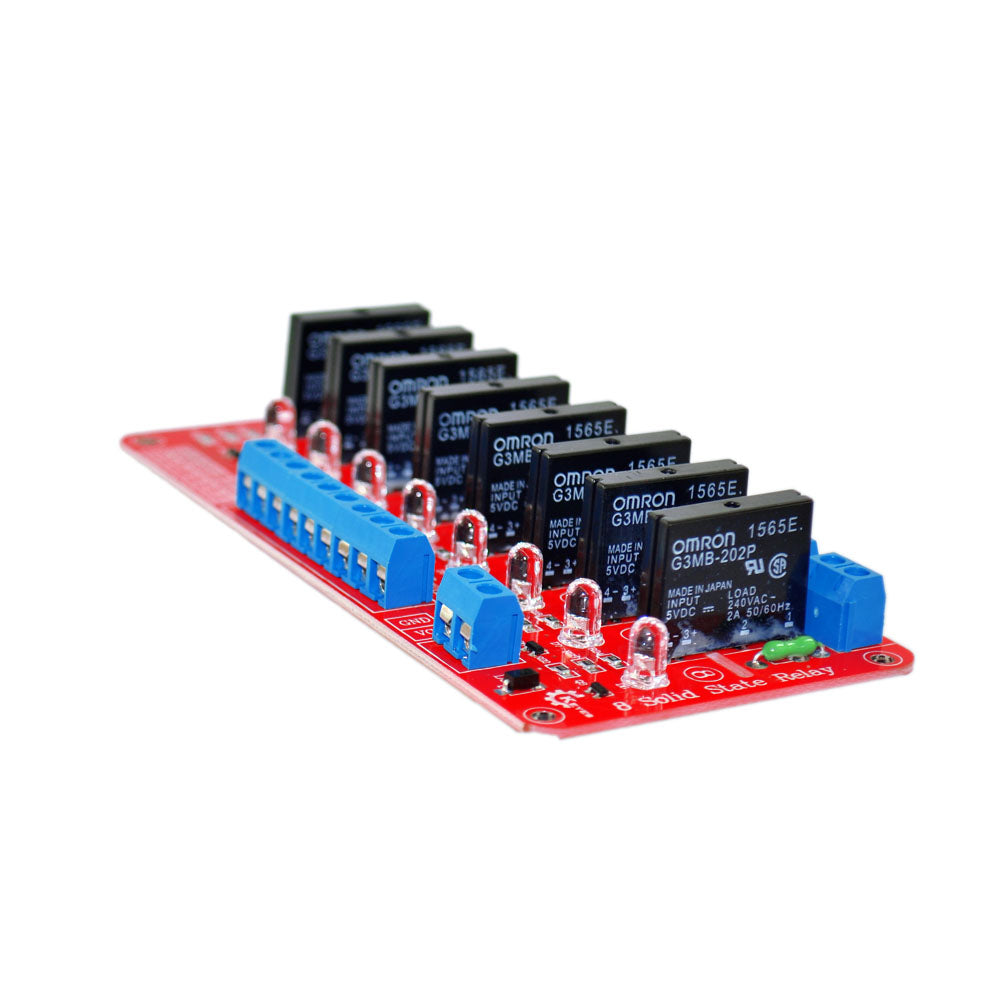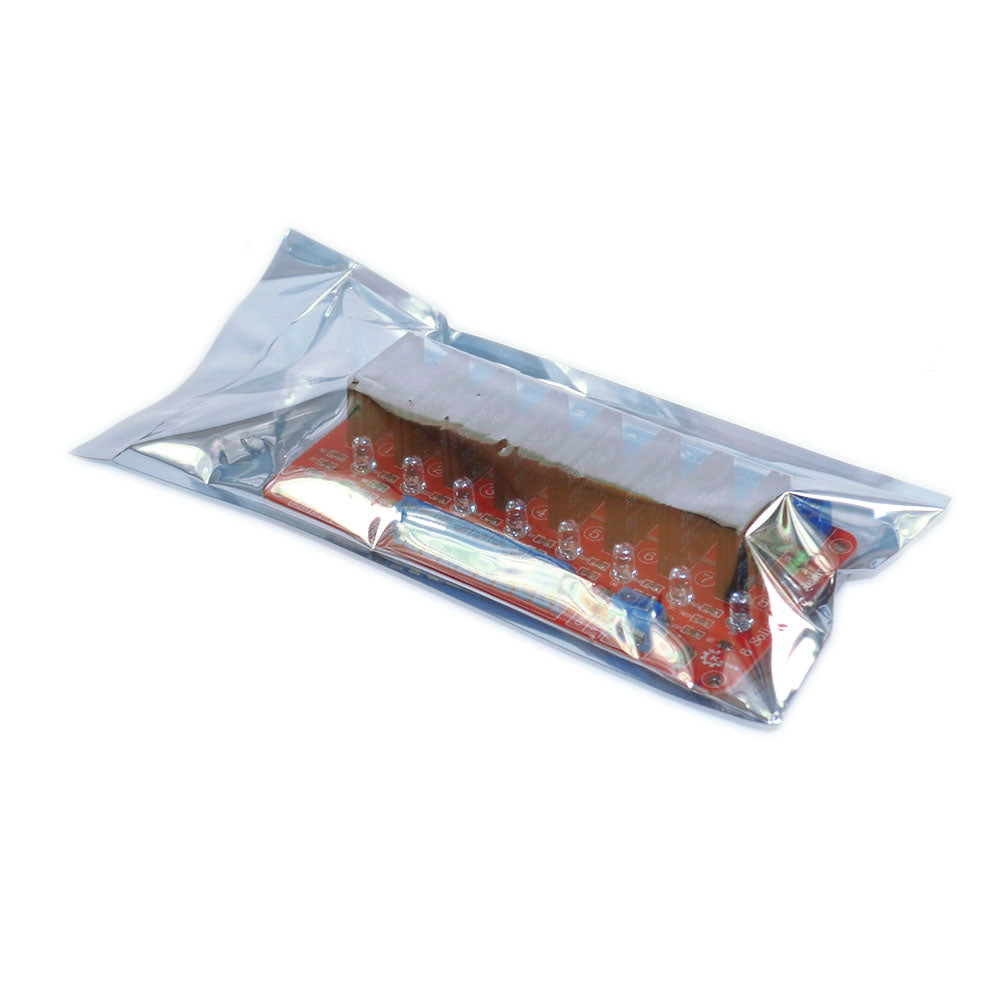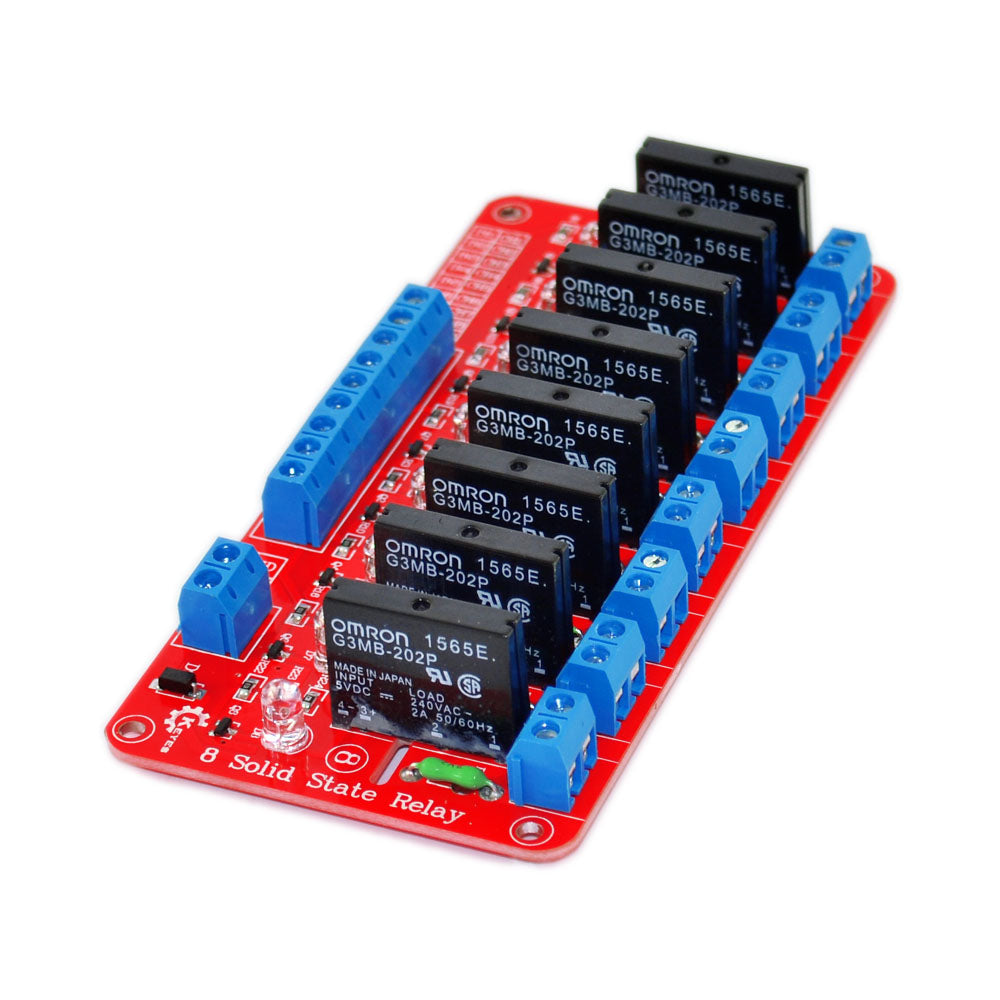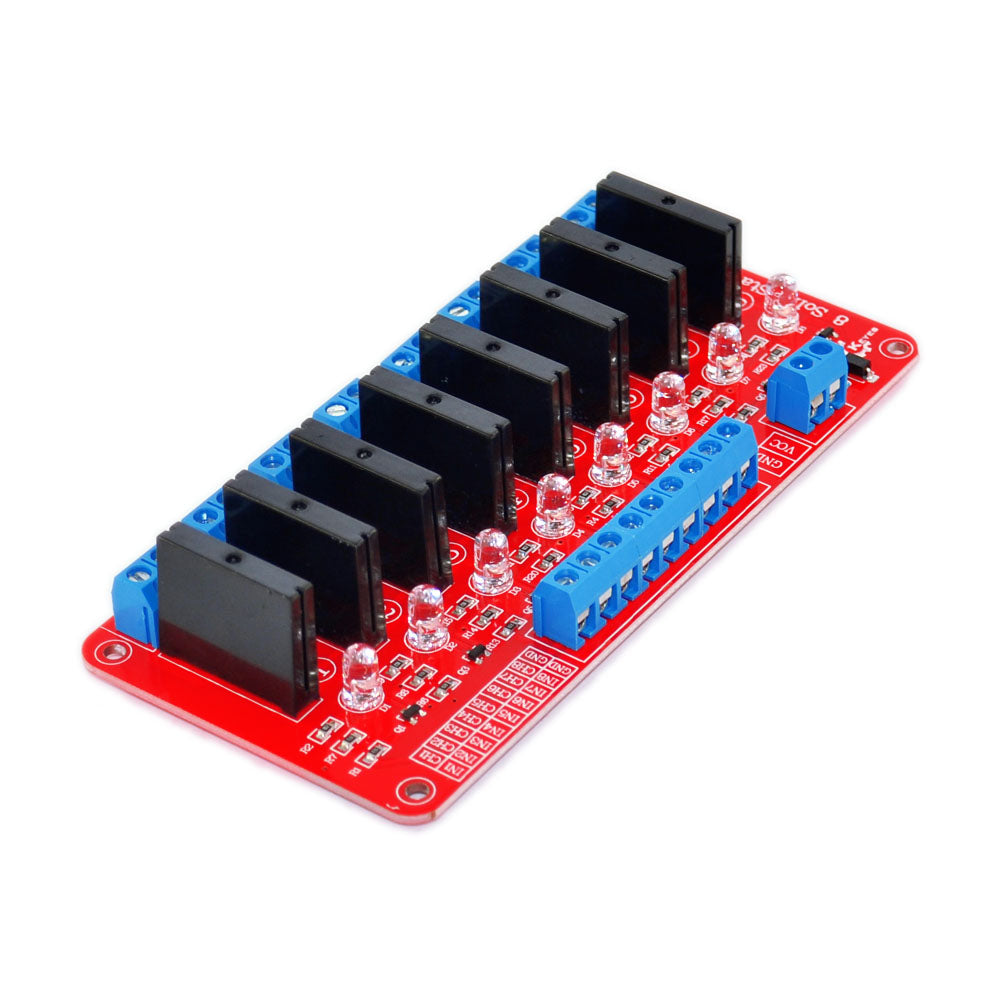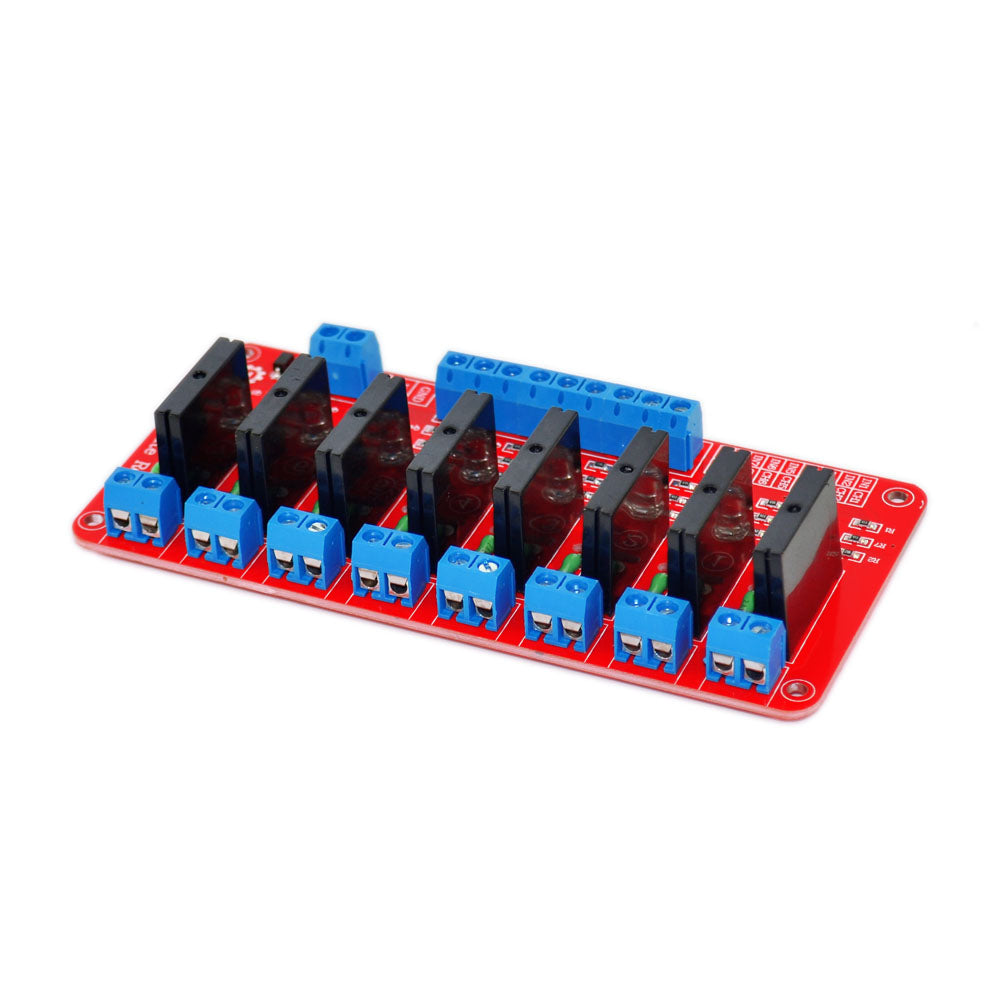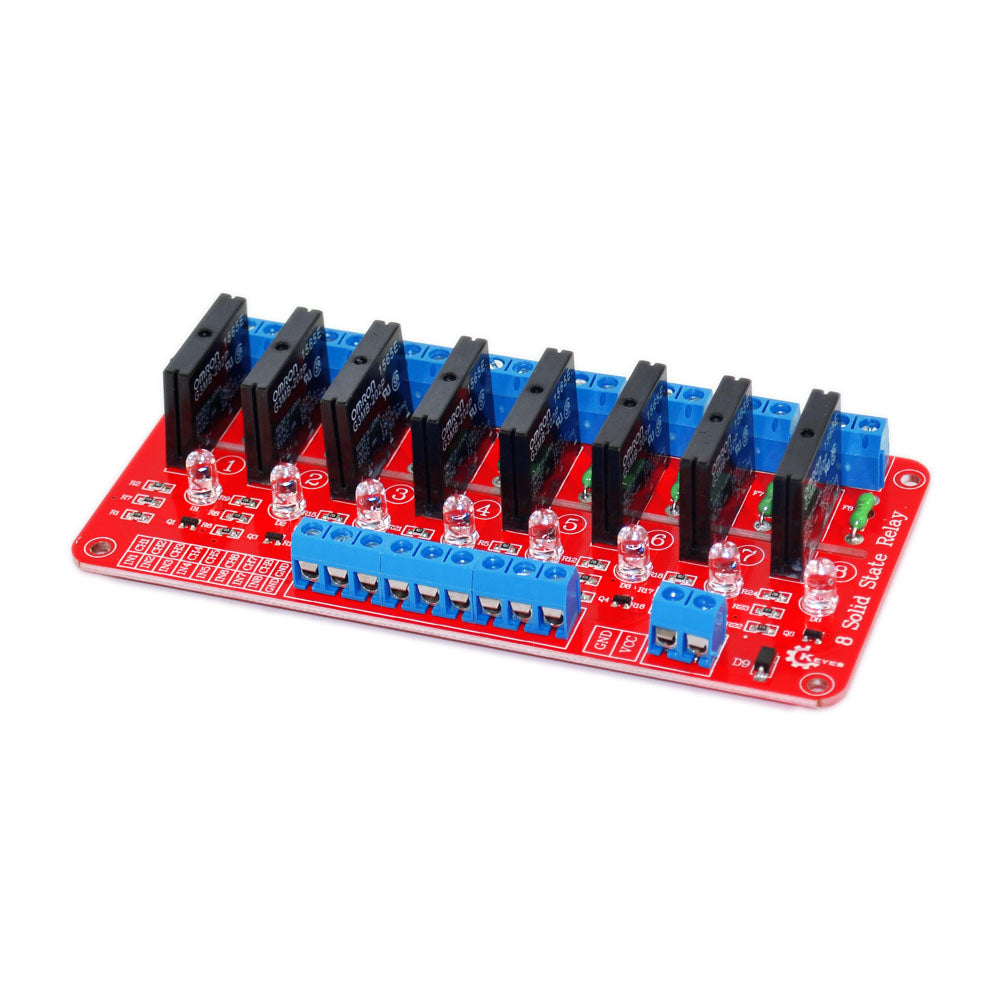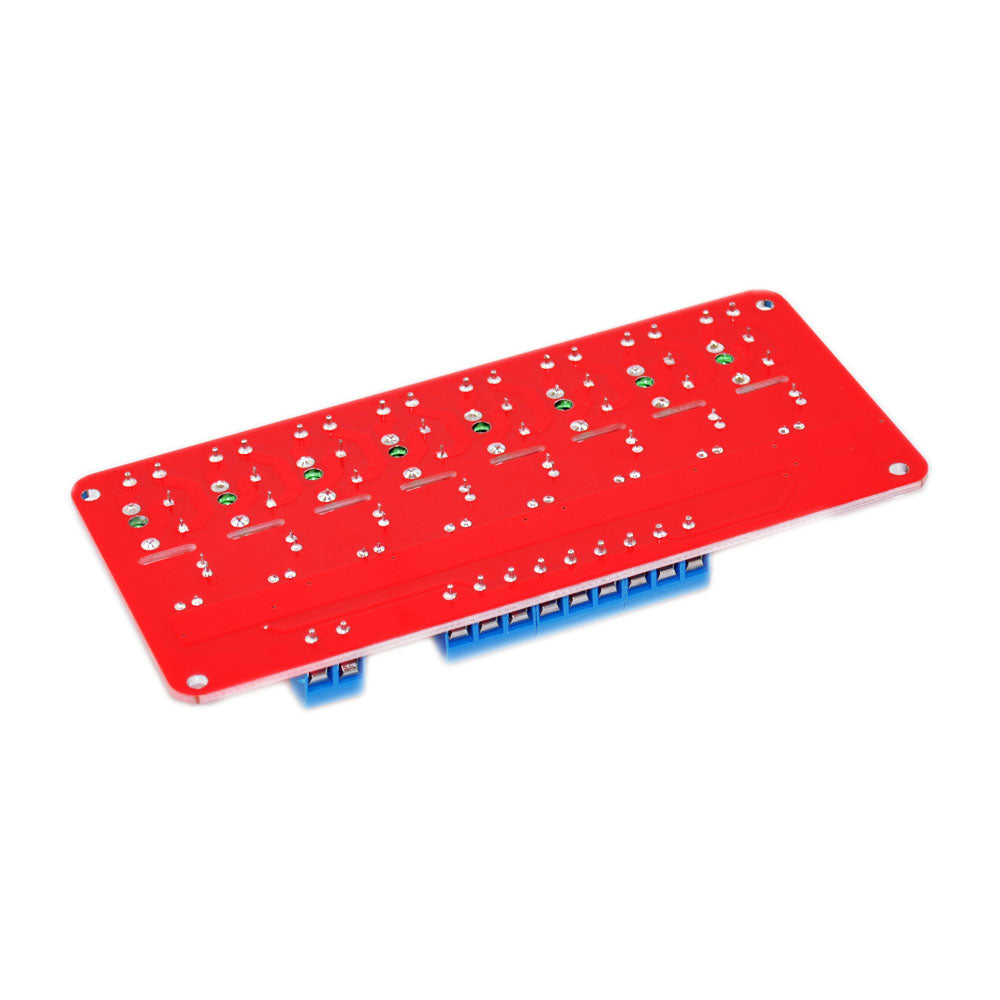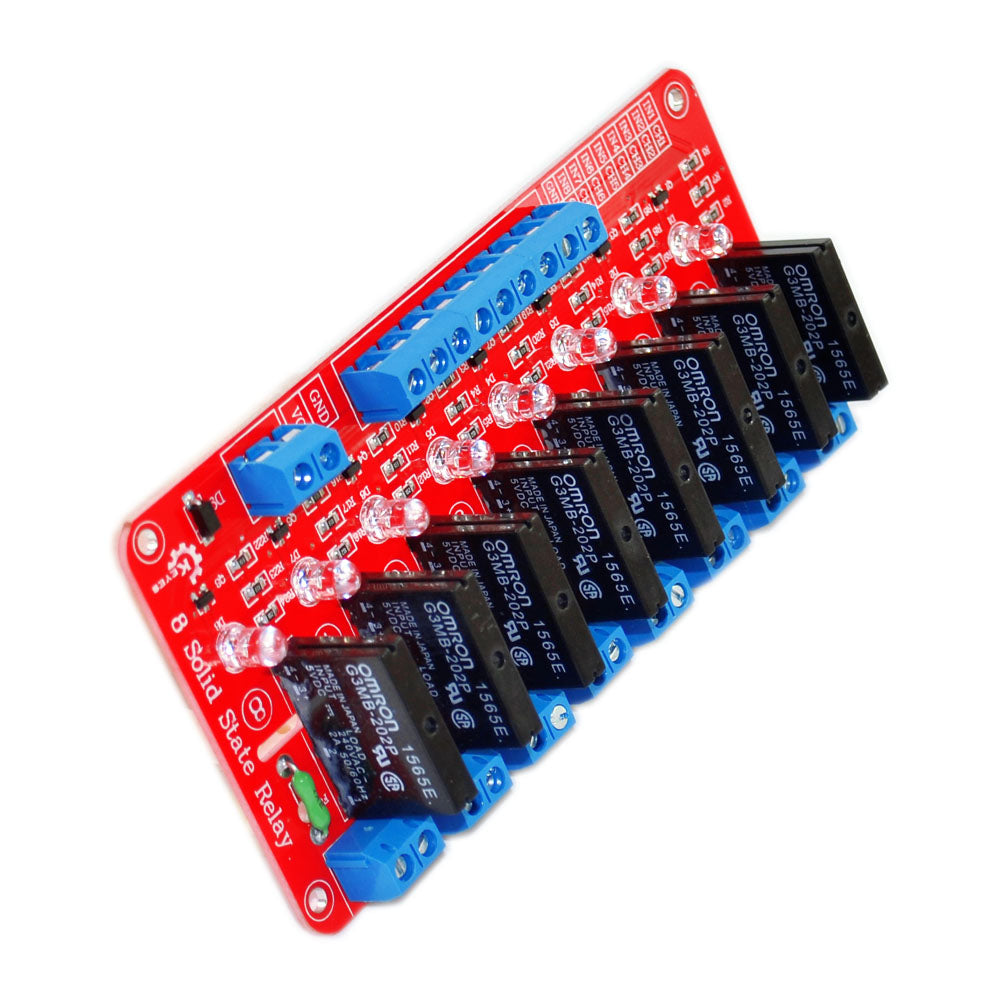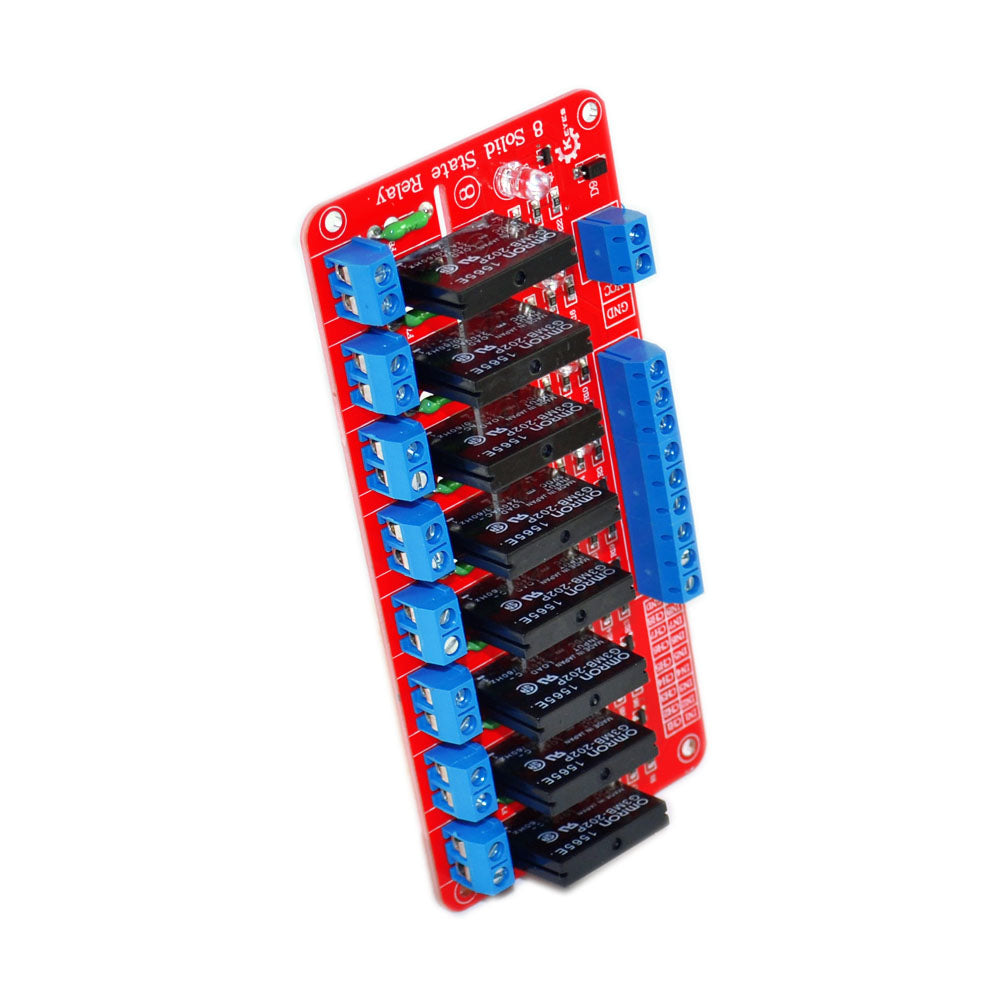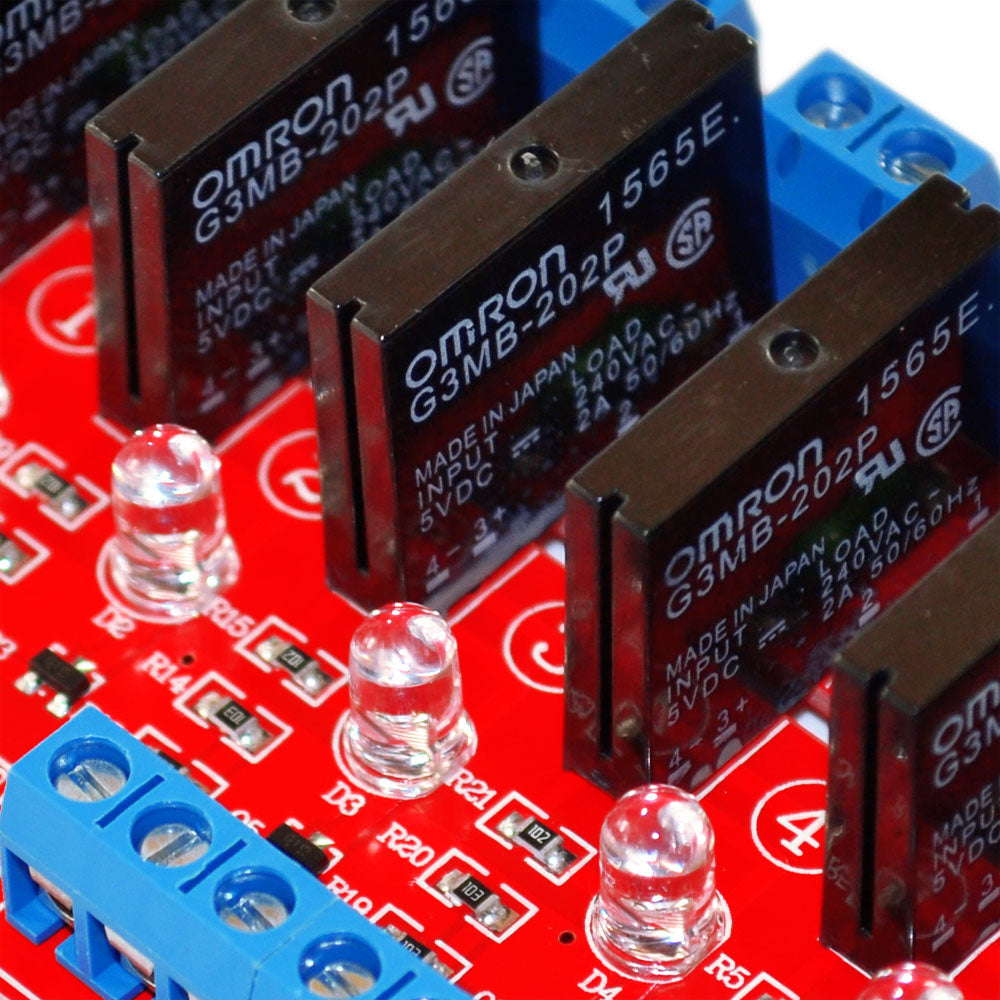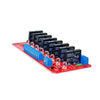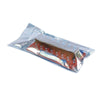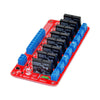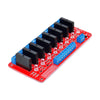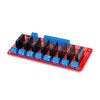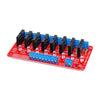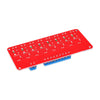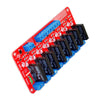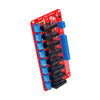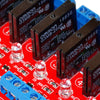One:
1.Omron 5V solid-state relay, 240V/2A, fuse with resistance 240V/2A.
2.input power supply: 5V DC (160MA)
3. input control signal voltage:
(0-2.5V, low level status, relay OFF)
(3-5V, high level status, relay ON)
4. More convenient to use KF301 port for control line connecting.
Two. Module interface:
1. Input:
DC+: connect power positive £֣ãã¨power supply according to relay voltage£©
DC-: connect power negative £ǣΣÄ
CH1: signal trigger end of relay module contact 1 (high level trigger)
CH2: signal trigger end of relay module contact 2 (high level trigger)
CH3: signal trigger end of relay module contact 3 (high level trigger)
CH4: signal trigger end of relay module contact 4 (high level trigger)
CH5: signal trigger end of relay module contact 5 (high level trigger)
CH6: signal trigger end of relay module contact 6 (high level trigger)
CH7: signal trigger end of relay module contact 7 (high level trigger)
CH8: signal trigger end of relay module contact 8 (high level trigger)
£². Meaning of high level and low level:
High level trigger refers to a forward voltage between the signal trigger end (CH) and the power negative pole. The trigger is usually realized by connecting power positive end to the signal trigger end. When the trigger end has positive voltage or voltage reaches the trigger point, relay is closed.
Low level trigger refers to a 0V between the signal trigger end and the power negative pole, or the voltage of the trigger end is lower than that of the power positive pole, which reaches the level of trigger point, the relay is closed. The trigger is usually realized by connecting power negative end to the signal trigger end.
Electrical?parameters:
? ? ? ? ? Voltage?quiescent?current??working?current????trigger?voltage???trigger?current
Contact?1 ? ? ??5V ? ? ? ? ? 0mA ? ? ? ? ? ? ? ? 13.8mA ? ? ? ? ? ? ? ?3-5V ? ? ? ? ? ? ?2mA
Contact?2 ? ? ??5V ? ? ? ? ? 0mA ? ? ? ? ? ? ? ? 26.8mA ? ? ? ? ? ? ? ?3-5V ? ? ? ? ? ? ?2mA
Contact?3 ? ? ??5V ? ? ? ? ? 0mA ? ? ? ? ? ? ? ? 37mA ? ? ? ? ? ? ? ? ?3-5V ? ? ? ? ? ? ? 2mA
Contact?4 ? ? ??5V ? ? ? ? ? 0mA ? ? ? ? ? ? ? ? 48mA ? ? ? ? ? ? ? ? ?3-5V ? ? ? ? ? ? ? 2mA
Contact?5 ? ? ??5V ? ? ? ? ? 0mA ? ? ? ? ? ? ? ? 59mA ? ? ? ? ? ? ? ? ?3-5V ? ? ? ? ? ? ? 2mA
Contact?6 ? ? ??5V ? ? ? ? ? 0mA ? ? ? ? ? ? ? ? 70mA ? ? ? ? ? ? ? ? ?3-5V ? ? ? ? ? ? ? 2mA
Contact?7 ? ? ??5V ? ? ? ? ? 0mA ? ? ? ? ? ? ? ? 81mA ? ? ? ? ? ? ? ? ?3-5V ? ? ? ? ? ? ? 2mA
Contact?8 ? ? ??5V ? ? ? ? ? 0mA ? ? ? ? ? ? ? ? 90mA ? ? ? ? ? ? ? ? ?3-5V ? ? ? ? ? ? ? 2mA
Three. Product instruction:
power supply of module: power supply must be DC, voltage should match the relay voltage.
One:
1.Omron 5V solid-state relay, 240V/2A, fuse with resistance 240V/2A.
2.input power supply: 5V DC (160MA)
3. input control signal voltage:
(0-2.5V, low level status, relay OFF)
(3-5V, high level status, relay ON)
4. More convenient to use KF301 port for control line connecting.
Two. Module interface:
1. Input:
DC+: connect power positive £֣ãã¨power supply according to relay voltage£©
DC-: connect power negative £ǣΣÄ
CH1: signal trigger end of relay module contact 1 (high level trigger)
CH2: signal trigger end of relay module contact 2 (high level trigger)
CH3: signal trigger end of relay module contact 3 (high level trigger)
CH4: signal trigger end of relay module contact 4 (high level trigger)
CH5: signal trigger end of relay module contact 5 (high level trigger)
CH6: signal trigger end of relay module contact 6 (high level trigger)
CH7: signal trigger end of relay module contact 7 (high level trigger)
CH8: signal trigger end of relay module contact 8 (high level trigger)
£². Meaning of high level and low level:
High level trigger refers to a forward voltage between the signal trigger end (CH) and the power negative pole. The trigger is usually realized by connecting power positive end to the signal trigger end. When the trigger end has positive voltage or voltage reaches the trigger point, relay is closed.
Low level trigger refers to a 0V between the signal trigger end and the power negative pole, or the voltage of the trigger end is lower than that of the power positive pole, which reaches the level of trigger point, the relay is closed. The trigger is usually realized by connecting power negative end to the signal trigger end.
Electrical?parameters:
? ? ? ? ? Voltage?quiescent?current??working?current????trigger?voltage???trigger?current
Contact?1 ? ? ??5V ? ? ? ? ? 0mA ? ? ? ? ? ? ? ? 13.8mA ? ? ? ? ? ? ? ?3-5V ? ? ? ? ? ? ?2mA
Contact?2 ? ? ??5V ? ? ? ? ? 0mA ? ? ? ? ? ? ? ? 26.8mA ? ? ? ? ? ? ? ?3-5V ? ? ? ? ? ? ?2mA
Contact?3 ? ? ??5V ? ? ? ? ? 0mA ? ? ? ? ? ? ? ? 37mA ? ? ? ? ? ? ? ? ?3-5V ? ? ? ? ? ? ? 2mA
Contact?4 ? ? ??5V ? ? ? ? ? 0mA ? ? ? ? ? ? ? ? 48mA ? ? ? ? ? ? ? ? ?3-5V ? ? ? ? ? ? ? 2mA
Contact?5 ? ? ??5V ? ? ? ? ? 0mA ? ? ? ? ? ? ? ? 59mA ? ? ? ? ? ? ? ? ?3-5V ? ? ? ? ? ? ? 2mA
Contact?6 ? ? ??5V ? ? ? ? ? 0mA ? ? ? ? ? ? ? ? 70mA ? ? ? ? ? ? ? ? ?3-5V ? ? ? ? ? ? ? 2mA
Contact?7 ? ? ??5V ? ? ? ? ? 0mA ? ? ? ? ? ? ? ? 81mA ? ? ? ? ? ? ? ? ?3-5V ? ? ? ? ? ? ? 2mA
Contact?8 ? ? ??5V ? ? ? ? ? 0mA ? ? ? ? ? ? ? ? 90mA ? ? ? ? ? ? ? ? ?3-5V ? ? ? ? ? ? ? 2mA
Three. Product instruction:
power supply of module: power supply must be DC, voltage should match the relay voltage.
RETURNS POLICY
Lorem ipsum dolor sit amet, consectetur adipiscing elit. Morbi ut blandit risus. Donec mollis nec tellus et rutrum. Orci varius natoque penatibus et magnis dis parturient montes, nascetur ridiculus mus. Ut consequat quam a purus faucibus scelerisque. Mauris ac dui ante. Pellentesque congue porttitor tempus. Donec sodales dapibus urna sed dictum. Duis congue posuere libero, a aliquam est porta quis.
Donec ullamcorper magna enim, vitae fermentum turpis elementum quis. Interdum et malesuada fames ac ante ipsum primis in faucibus.
Curabitur vel sem mi. Proin in lobortis ipsum. Aliquam rutrum tempor ex ac rutrum. Maecenas nunc nulla, placerat at eleifend in, viverra etos sem. Nam sagittis lacus metus, dignissim blandit magna euismod eget. Suspendisse a nisl lacus. Phasellus eget augue tincidunt, sollicitudin lectus sed, convallis desto. Pellentesque vitae dui lacinia, venenatis erat sit amet, fringilla felis. Nullam maximus nisi nec mi facilisis.
SHIPPING
Lorem ipsum dolor sit amet, consectetur adipiscing elit. Morbi ut blandit risus. Donec mollis nec tellus et rutrum. Orci varius natoque penatibus et magnis dis parturient montes, nascetur ridiculus mus. Ut consequat quam a purus faucibus scelerisque. Mauris ac dui ante. Pellentesque congue porttitor tempus. Donec sodales dapibus urna sed dictum. Duis congue posuere libero, a aliquam est porta quis.
Donec ullamcorper magna enim, vitae fermentum turpis elementum quis. Interdum et malesuada fames ac ante ipsum primis in faucibus.
Curabitur vel sem mi. Proin in lobortis ipsum. Aliquam rutrum tempor ex ac rutrum. Maecenas nunc nulla, placerat at eleifend in, viverra etos sem. Nam sagittis lacus metus, dignissim blandit magna euismod eget. Suspendisse a nisl lacus. Phasellus eget augue tincidunt, sollicitudin lectus sed, convallis desto. Pellentesque vitae dui lacinia, venenatis erat sit amet, fringilla felis. Nullam maximus nisi nec mi facilisis.














